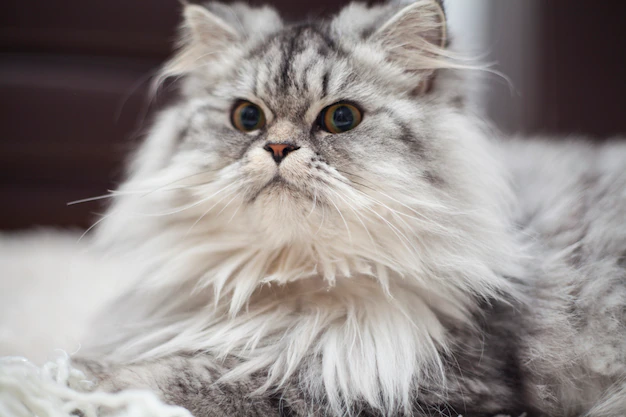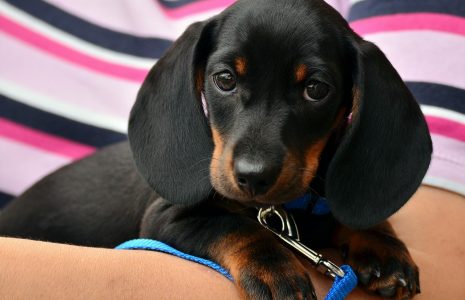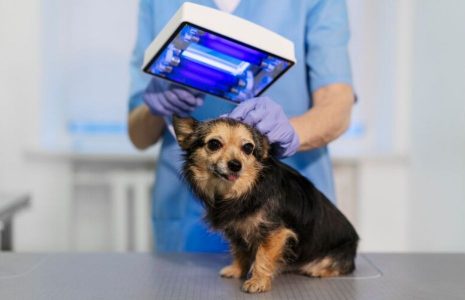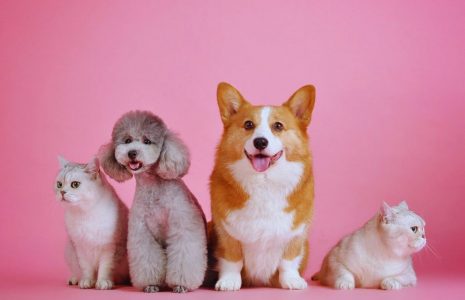Harmonious Households: The Best Dog Breeds For Maine Coon Companionship


Maine Coons are distinguished not only by their impressive size but also by their unique physical and behavioral characteristics.
These cats often weigh between 10 to 25 pounds, with males generally being larger. Their physical attributes include a robust bone structure, a rectangular body shape, and a long, bushy tail that they often wrap around themselves for warmth.
One of the most striking features of Maine Coons is their coat. It is dense and water-resistant, designed to withstand harsh climates. Their fur is longer on the ruff, shoulders, and stomach, which adds to their majestic appearance. Their color as well as patterns vary widely, such as solid, tabby, and tortoiseshell.
They have expressive eyes, which can either be green, gold, or copper-colored, combined with their captivating appearance. Interestingly, Maine Coons are one of the few cat breeds that can have different colored eyes, a condition known as heterochromia.
Maine Coons have large, tufted ears which serve a practical purpose: to keep them warm in cold climates. These ear tufts are often likened to those of a lynx and enhance their distinctive wild look.
Behaviorally, Maine Coons are known for their dog-like characteristics. Oksana, an expert from Kitty Land, notes that such cats are highly intelligent and trainable, often enjoying playing fetch and learning tricks.
They have a gentle and friendly disposition, making them excellent family pets. Their playful yet laid-back nature means they are often patient with children and other animals, adapting well to busy households.
Another charming trait of Maine Coons is their vocalization. They are known for their unique chirping and trilling sounds, which are different from the typical meows of other cat breeds. This vocalization is a way for Maine Coons to communicate with their owners and is often seen as a sign of affection and engagement.
Overall, the Maine Coon’s unique combination of physical attributes, intelligence, and sociable nature makes them one of the most beloved cat breeds around the world.
The Significance of Pet Compatibility
The concept of pet compatibility extends beyond simply ensuring pets can coexist without conflict. It’s about fostering a deep, harmonious relationship between different species within a household, which can significantly enhance the well-being of both pets and their owners.
Importance of Compatible Personalities
Just like humans, animals have distinct personalities. Some dogs may be more energetic and playful, while others are calmer and more reserved. Similarly, cats vary in their levels of sociability and activity.
Matching a dog’s personality with that of a Maine Coon is crucial. For instance, a highly active dog might overwhelm a more reserved Maine Coon, whereas a calm and gentle dog might be a perfect companion for a sociable and playful cat.
Impact on Pet Well-Being
When pets are compatible, they can positively impact each other’s mental and physical health. Companionship can reduce stress and anxiety, leading to a more relaxed and happy pet. This is especially important when owners are away from home, as pets can keep each other company, reducing feelings of loneliness and separation anxiety.
Socialization Benefits
Introducing a dog into a household with a Maine Coon can also provide essential socialization opportunities for both animals. Properly socialized pets are generally more adaptable, confident, and less prone to behavioral problems. This is particularly beneficial for kittens and puppies as they learn to navigate their environment and understand appropriate behaviors.
Creating a Balanced Household
The right pet pairing can create a balanced and peaceful household. Pets that are compatible will often play together, providing each other with physical exercise and mental stimulation. This not only keeps them healthy but also can help in preventing destructive behaviors that stem from boredom or excess energy.
Long-Term Companionship
When pets get along well, they can form long-lasting bonds that enrich their lives for years. These relationships often result in heartwarming interactions that bring joy and laughter to pet owners. Watching a Maine Coon and a dog cuddle, play, or simply coexist in harmony can be a delightful experience and a testament to the power of interspecies friendship.
Top Dog Breeds for Maine Coons
Labrador Retriever
Labrador Retrievers are known for their friendly and outgoing nature. Their calm demeanor and patience make them ideal companions for the sociable Maine Coon. Labs are also known for being great with children and other pets, making them a top choice for multi-pet households.
Golden Retriever
Similar to Labradors, Golden Retrievers are affectionate and gentle dogs. They have a high tolerance level and a friendly disposition, which complements the playful nature of Maine Coons. Goldens are also highly trainable, which helps in establishing boundaries in multi-pet homes.
Beagle
Beagles are small to medium-sized dogs known for their curious and merry nature. Their size makes them less intimidating for cats, and their playful attitude can be a good match for a Maine Coon’s energy. Beagles do require regular exercise, which can be a fun activity for both the dog and the cat.
Boxer
Boxers are energetic and fun-loving, making them great companions for an active Maine Coon. They are quite popular for their loyalty as well as protective nature, often developing strong bonds with their family members, including other pets. Boxers do require consistent training and socialization, especially in a multi-pet household.
Creating a Friendly Introduction Between Dogs and Maine Coons
Preparation and Safety
Introducing a dog to a Maine Coon cat requires careful preparation to ensure a smooth and safe meeting. Before the introduction, it’s important to assess the temperament and past experiences of each animal with other species. Make sure both pets are healthy, up to date with vaccinations, and free of parasites to prevent any health risks.
Creating a safe space for each animal is crucial. This could mean having a separate room or a secure area where each pet can retreat if they feel stressed or overwhelmed. Familiarizing each pet with the other’s scent before the actual meeting can also be beneficial. This can be done by swapping bedding or toys between the dog and the cat.
Introduction Strategies
The introduction should be done gradually and in controlled stages. Initially, keep the dog on a leash and allow the Maine Coon to observe from a distance. This setup helps prevent any sudden movements or aggressive behavior.
It’s important to read the body language of both animals during these initial meetings. Signs of stress or aggression, like hissing, growling, or stiff body language, should be taken seriously. If either pet shows signs of discomfort, it’s best to separate them and try again later.
During these initial interactions, use treats and positive reinforcement to encourage calm and friendly behavior. Praise both pets for good behavior, and try to keep the atmosphere relaxed and positive.
Gradually increase the duration and proximity of their interactions over several days or weeks, depending on their comfort level. It’s important to allow the Maine Coon to approach the dog on its own terms. Forced interactions can lead to fear or aggression.
Monitoring and Adjusting
Continuously monitor the interactions between your Maine Coon and the dog. Look for positive signs like mutual sniffing, calm body language, or playful behavior. If either pet seems overly fearful or aggressive, step back to shorter, more controlled meetings.
Remember, each pet is an individual, and what works for one pair may not work for another. Be patient and be prepared to adjust your approach based on the specific needs and responses of your pets.
The Role of Consistency and Patience
Consistency is key during the introduction process. Try to conduct the interactions at the same time and place each day to establish a routine. Be patient and understand that building a friendly relationship between a dog and a Maine Coon takes time. It can be a slow process, but the end result of a harmonious multi-pet household is well worth the effort.
Creating a friendly introduction between a dog and a Maine Coon involves careful preparation, gradual and controlled interactions, and a lot of patience and understanding. By following these steps, pet owners can help foster a positive and lasting relationship between their beloved pets.
Maintaining a Peaceful Multi-Pet Household
Maintaining a peaceful environment in a household with both a Maine Coon and a dog requires ongoing effort and attention. Here are some strategies to ensure a harmonious coexistence.
Ongoing Care and Attention
Regular care is crucial for the well-being of both pets. This includes not only their physical needs, such as food, water, and exercise, but also their emotional and mental well-being. Providing each pet with individual attention and affection is important to prevent jealousy or competition. Engage in activities that both pets enjoy, and ensure they have their own space and resources, like separate beds, toys, and feeding areas.
Monitoring Interactions
Even after a successful introduction, it’s important to continuously monitor the interactions between your Maine Coon and dog. Look for signs of a healthy relationship, such as playing together, grooming each other, or simply resting in close proximity. Be vigilant for any signs of stress or aggression, and if they do occur, be ready to intervene and separate the pets if necessary.
Training and Boundaries
Training plays a significant role in maintaining peace. Ensure that your dog is well-trained and obeys commands, especially in situations where they might become overly excited or rough. Similarly, teach your Maine Coon positive behaviors and provide appropriate outlets for their natural instincts, like scratching posts and high perches.
Environmental Enrichment
Providing a stimulating environment is key to keeping both pets mentally and physically engaged. This includes interactive toys, puzzle feeders, and regular playtime. For dogs, walks and outdoor play are essential, while Maine Coons will appreciate climbing structures and areas to explore.
Health and Wellness
Regular veterinary check-ups for both pets are essential to monitor their health. A healthy pet is more likely to be a happy, well-behaved companion. Address any health issues promptly, as pain or discomfort can lead to irritability and behavioral problems.
Adjustments for Life Changes
Be prepared to make adjustments as needed for life changes, such as moving to a new home, introducing a new family member, or changing the family routine. These changes can be stressful for pets, so extra attention and reassurance may be needed.
Respect for Individual Needs
Understand and respect the individual needs of each pet. Some dogs may need more exercise and outdoor time, while your Maine Coon may need more quiet time or stimulation through play. Balancing these needs is crucial for a harmonious household.
Patience and Consistency
Maintaining peace in a multi-pet household requires patience and consistency. Consistent routines, rules, and expectations help pets feel secure and understand their environment. Be patient, as adjustments may take time, and each pet will adapt at their own pace.
Maintaining a peaceful multi-pet household involves a combination of regular care, monitoring interactions, training, environmental enrichment, health management, adjustments for life changes, respect for individual needs, and a consistent, patient approach. With these strategies, pet owners can create a loving and harmonious home for their Maine Coon and dog.
Read Also:








Leave A Comment